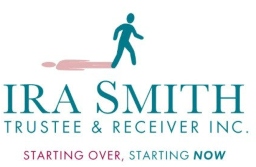When Related Party Business Loans Go Wrong: The $1.3 Million Mistake
A recent Nova Scotia court case shows how a related party loan when a business is insolvent has tricky rules that can leave the lender in a difficult situation when the borrower company goes bankrupt. The Atlantic Sea Cucumber Ltd. case shows how everything can go wrong when critical mistakes are made with related party business loans and security agreements.
As a Licensed Insolvency Trustee firm serving the Greater Toronto Area for over 20 years, we've seen similar disasters happen to local businesses. The good news? These problems are completely preventable when you know the rules.
Need help with related party loan or your debt issues? Schedule your free consultation today - don't wait until it's too late.
Related Party Definition: Who Counts?
A related party is anyone with close ties to your business. Under Canada's Bankruptcy and Insolvency Act (BIA), this includes:
You and your company - if you lend money to your own business
Sister companies - two companies owned by the same person
Family members - spouse, children, parents lending to your business
Connected entities - companies with shared ownership or control
Why Related Party Loans Get Special Attention
Regular bank loans have strict rules, formal paperwork, and clear terms. Related party loans often rely on handshake deals or simple agreements downloaded from the internet.
In bankruptcy, courts scrutinize these "insider" deals carefully. They want to ensure related parties aren't jumping ahead of other creditors or moving money around unfairly.
Warning: Courts can void related party security granted within 12 months of bankruptcy. This means your security becomes worthless, leaving you as an unsecured creditor.
Atlantic Sea Cucumber Case: The Facts
Let me walk you through the case that every business owner needs to understand: Atlantic Sea Cucumber Ltd. (Re), 2025 NSSC 234.
The Players
Atlantic Sea Cucumber Ltd. (ASC) - The company that went bankrupt
Atlantic Golden Age Holdings Inc. (AGAH) - ASC's parent company (the related party lender)
Weihai Taiwei Haiyang Aquatic Food Co. Ltd. (WTH) - Major supplier owed $1.32 million
What Went Wrong
The trouble started with a shipment of sea cucumbers, which ASC claimed were "too salty." This led to a massive legal battle. By February 2023, WTH won a $1.32 million court judgment against ASC.
ASC filed for bankruptcy protection in May 2023. There wasn't enough money to pay everyone. AGAH claimed they should get paid first because they had "security" on ASC's assets.
The court disagreed. Here's why AGAH lost.
Why AGAH's Security Failed: The Critical Mistakes
Mistake #1: "Spent" Security Problem
In 2018, AGAH lent money to ASC with proper security, as elementary as it was. But this loan was fully repaid by November 2020. The court ruled this made the security "spent" - like a used gift card with no value left.
When AGAH made new loans after 2020, they weren't covered by the old security agreement.
Mistake #2: Last-Minute Paperwork
In March and April 2023, just weeks before bankruptcy, AGAH tried to register new security documents. The timing looked suspicious to the court.
The court's message was clear: "Late efforts to paper over prior advances rarely work, especially when bankruptcy is looming."
Mistake #3: Internet Security Agreements
The court noted AGAH's original security agreement was "inelegant" and likely downloaded from the internet. As the judge said, "The internet is a lousy lawyer."
Result: AGAH's argument that the 2018 security agreement was really for a revolving line of credit, rather than a one-time advance, failed. It became an unsecured creditor, losing its priority position and likely getting very little or nothing in the bankruptcy.
The Court's Key Rulings on Related Party Loans
1. Proper Transaction Test
The court must determine if related party transactions were "proper," meaning fair and not designed to cheat other creditors.
The ruling: The 2018 loan was proper, but the 2023 security registration was not proper because it tried to benefit the related party at other creditors' expense.
2. Void Against the Trustee
This is the most damaging concept for related parties. Even if security seems valid between two or more related parties, it can be "void against the trustee" in bankruptcy.
What this means: The Licensed Insolvency Trustee can ignore your security and treat you as an unsecured creditor.
3. 12-Month Look-Back Rule
The BIA presumes related party security granted within 12 months of bankruptcy is void. You must prove it was proper and given for fair value.
Take action now: If your business has financial problems, don't wait to fix related party loan documentation.
How to Protect Your Related Party Loans
1. Document Everything Professionally
Never rely on:
Handshake agreements
Simple emails
Internet-downloaded forms
AI-generated documents
Always include:
Exact loan amounts
Interest rates
Repayment schedules
Specific collateral descriptions
Default conditions
2. Register Security Immediately
Don't just sign documents. For personal property, you must register security with your province's Personal Property Security Act (PPSA) system immediately. Real property security has a different registration system in each province.
In Ontario, this means proper (PPSA) registration that gives public notice to other creditors.
3. Act Before Crisis Hits
Don't wait until:
Your business faces lawsuits
Cash flow problems emerge
Other creditors demand payment
Bankruptcy becomes likely
The window for proper related party loans closes quickly once financial trouble begins.
4. Get Professional Help Early
As a Licensed Insolvency Trustee firm in the GTA, we help businesses structure related party transactions correctly from the start. We can work with your lawyer to:
Review existing related party loans
Ensure proper documentation and registration
Plan debt restructuring strategies
Protect your assets legally
Don't learn these lessons the hard way. Contact us for a free consultation before problems arise.
Lessons for Other Creditors
1. Investigate Related Party Claims
If you're owed money by a company with related party loans, have your lawyer investigate those claims. Improperly documented related party loans mean more money available for ordinary unsecured creditors.
2. The Licensed Insolvency Trustee Protects You
The Licensed Insolvency Trustee's job is to ensure fairness for all creditors (although that was not necessarily the case in the Atlantic Sea Cucumber matter). We investigate and challenge suspicious related party claims that unfairly benefit insiders.
3. Verify Security Claims
Before extending credit, verify any existing security registrations. This reveals problems with documentation or scope that could affect your recovery.
4. Speak Up About Unfair Deals
If you suspect unfair related party dealings in a bankruptcy, raise concerns with the Trustee. We can investigate and take legal action when necessary.
Related Party Frequently Asked Questions
What makes a loan a related party transaction?
Any loan between a business and its owners, family members, or connected companies is a related party transaction requiring special documentation and scrutiny.
How long before bankruptcy can related party security be challenged?
The BIA allows challenges to related party security granted within 12 months of bankruptcy. Earlier transactions may also be challenged if they're improper.
What documents are needed for valid related party loans?
You need professional loan agreements, promissory notes, security agreements, proof of advance(s) and proper PPSA or land registry registrations. Internet downloads, AI generated forms and casual agreements don't work.
Can related party loans ever be secured properly?
Yes, but they must be documented professionally, registered immediately, and given for fair value when the company is financially healthy.
What happens to a related party in bankruptcy?
Improperly secured related party loans become unsecured debts, meaning they're paid after trust claims and valid secured creditors and may receive nothing if assets are insufficient.
The Bottom Line: Don't Cut Corners
The Atlantic Sea Cucumber case teaches us that related party loans require professional handling from day one. Waiting until financial trouble hits or relying on DIY legal documents almost always fails.
As the court noted: "Don't cut corners on legal paperwork." This is especially true for related party transactions that face extra scrutiny in bankruptcy.
Key Takeaways for GTA Businesses:
Document related party loans professionally - no internet forms or handshake deals
Register security immediately - don't wait for financial trouble
Act while financially healthy - late efforts rarely work
Get expert help early - prevent problems before they start
Get Expert Help For Related Party Loan Issues
Don't let related party loan mistakes destroy your business like they did for Atlantic Sea Cucumber Ltd.
Ira Smith Trustee & Receiver Inc. has helped Greater Toronto Area businesses and consumers navigate complex debt situations for over 20 years. We understand the unique challenges of related party transactions and can help you:
Structure loans properly from the start
Review existing related party agreements
Navigate financial restructuring
Protect your interests in bankruptcy proceedings
Take action now - contact us for a free, confidential consultation. Don't wait until it's too late to fix these critical issues.
Ira Smith Trustee & Receiver Inc. is a Licensed Insolvency Trustee firm serving consumers, entrepreneurs, and businesses in the Greater Toronto Area. Brandon Smith has 19 years of experience, and Ira Smith has 45 years of experience in the Greater Toronto Area insolvency marketplace. We specialize in helping clients navigate complex debt situations, business restructuring, and if required as a last resort, bankruptcy proceedings. Licensed by the Office of the Superintendent of Bankruptcy Canada.
Contact Information:
Phone: 647.799.3312
Email: ira@irasmithinc.com or brandon@irasmithinc.com
Office: 167 Applewood Crescent #6, Vaughan, ON L4K 4K7
Website: https://irasmithinc.com
The information provided in this blog is intended for educational purposes only. It is not intended to constitute legal, financial, or professional advice. Readers are encouraged to seek professional advice regarding their specific situations. The content should not be relied upon as a substitute for professional guidance or consultation. The author, Ira Smith Trustee & Receiver Inc., and any contributors do not assume any liability for any loss or damage.



